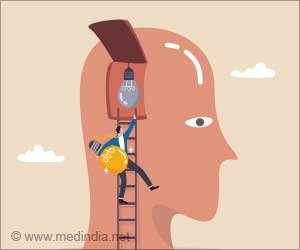Dementia Risk Lowered With the Help of Education

Dementia concerns all nations. More than 50 million people around the world are suffering from the condition, with the number estimated to exceed 150 million by the end of 2050. Japan had been widely expected to have over 9 million dementia cases by the end of 2040, up from 4.62 million in 2012.
This contrast to previous forecasts was the result of incorporating health status and educational history into their research. Specifically, it indicated that people may be less prone to dementia if they obtain higher levels of education.
Advertisement
The researchers had a clue that education might play a role in dementia before they started investigating. They looked at the number of years people were expected to live beyond the age of 65, and how much of their remaining time would be affected by dementia.
In males, just 1.4% were college graduates, 7.7% were high school graduates and 25.6% had received lower levels of education. For women, the respective figures were 15.4%, 14.8%, and 24.6%. Thus, the higher the level of education, fewer the people who were likely to suffer from dementia (1✔ ✔Trusted Source
The Relationship between Education and Dementia An Updated Systematic Review
Go to source).
Connecting the Dots Between Education and Dementia
Dementia numbers are expected to increase overall as populations grow and age, but this does not mean the condition will become more prevalent. Research shows that the percentage of elderly people suffering from the condition has fallen in advanced economies.
The findings of a research project led by economist Peter Hudomiet of the US think tank Rand Corp in November showed that the ratio of dementia sufferers among people aged 65 or older decreased from 12.2% in 2000 to 8.5% in 2016 in the US.
However, the reasons that improved educational levels have played a significant role, as both male and female college graduates have increased. The research also discovered that the difference in ratios of dementia sufferers has narrowed between non-Hispanic white males and Black males.
The importance of education in lessening dementia has for years been common knowledge among researchers. They have also noted that less education starting at adolescence is a risk factor, along with high blood pressure and depression.
Expand your Mind to Shrink Dementia Risk
A significant number of dementia cases are attributed to brain nerves damaged by waste proteins, lending some credence to theories that being in school when brain cells are developing makes the brain tougher, and that life experiences, work, and increased health awareness through connections developed on campuses can help prevent dementia later in life (2✔ ✔Trusted Source
Higher Education Is Associated with a Lower Risk of Dementia after a Stroke or TIA. The Rotterdam Study
Go to source
).
But if dementia research concludes that education is vital to reducing the disorder, society as a whole will have to change before desired outcomes are achieved. Some people do not have the opportunity to pursue higher education, especially in communities where inequality is rife.
Hence, social reforms aimed at providing more equal educational opportunities are being recognized as a way to reduce dementia.
The research findings are not conclusive evidence that education is the only factor. That means there could be other options to treat or help prevent dementia. Dementia can be caused by several factors and reducing these could be more than enough (3✔ ✔Trusted Source
Community-level educational attainment and dementia: a 6-year longitudinal multilevel study in Japan
Go to source).
Another important finding is that even people with comparatively high levels of education can still fall victim to dementia if they smoke or have high blood pressure.
The latest studies, however, indicate that managing one’s health is not enough to avoid the condition. Dementia risk is larger in communities where opportunities for advancement – educational and otherwise – are blocked. People living in such environments must not be overlooked if risk of dementia is to be lessened.
References :
- The Relationship between Education and Dementia An Updated Systematic Review – (https://www.ncbi.nlm.nih.gov/pmc/articles/PMC3193875/)
- Higher Education Is Associated with a Lower Risk of Dementia after a Stroke or TIA. The Rotterdam Study – (https://www.karger.com/Article/Fulltext/443649)
- Community-level educational attainment and dementia: a 6-year longitudinal multilevel study in Japan – (https://bmcgeriatr.biomedcentral.com/articles/10.1186/s12877-021-02615-x)
Source: Eurekalert
Source link
#Dementia #Risk #Lowered #Education



